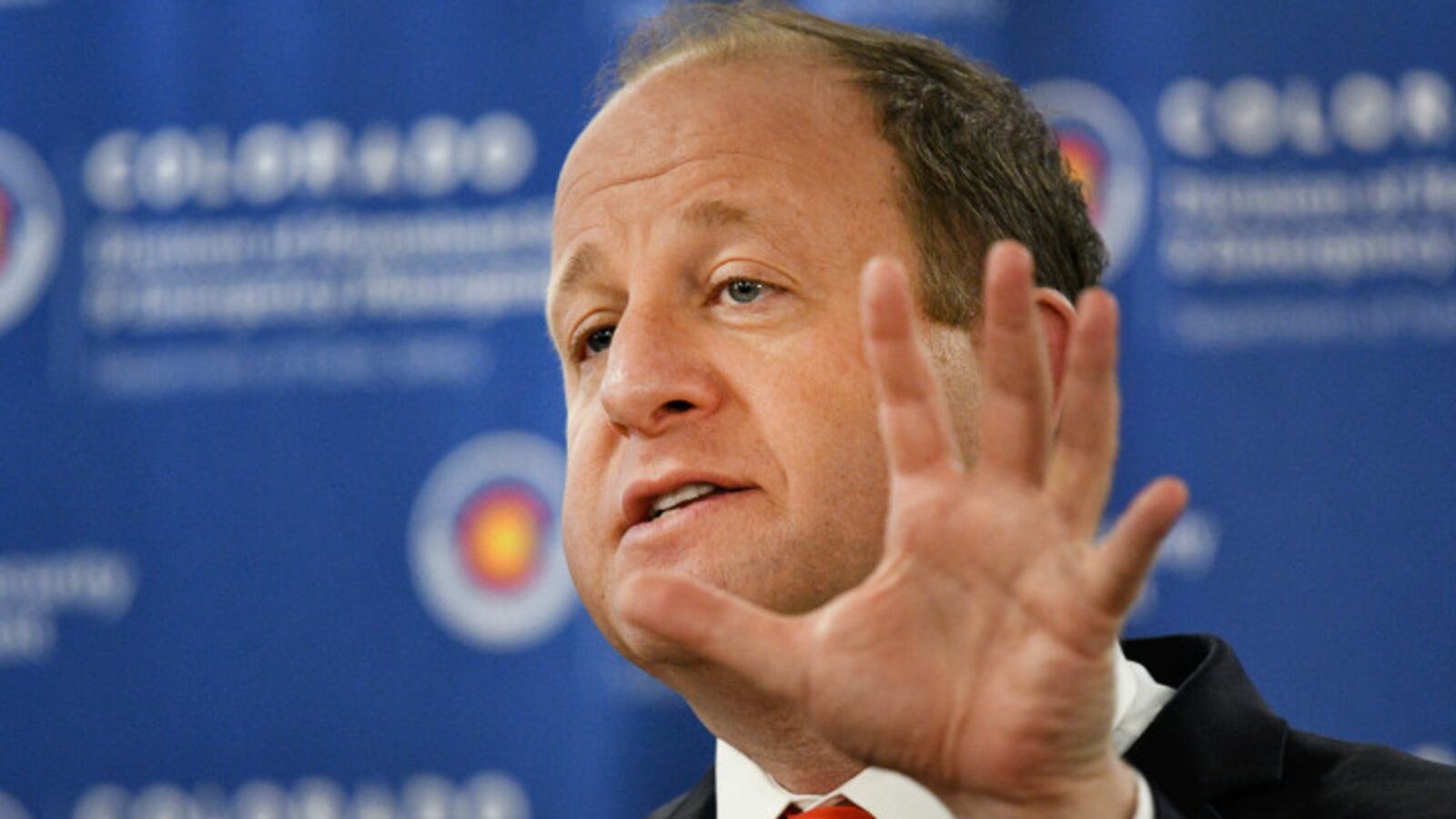Colorado schools will remain closed at least through April 30, a move that makes it ever less likely that in-person classes will resume this school year.
Gov. Jared Polis made the announcement Wednesday, a day after The Denver Post reported that Denver Mayor Michael Hancock would extend that city’s stay-at-home order at least until the end of the month. Along with closing bars and restaurants to dine-in service and keeping non-essential workers at home, school closures are a key part of the social distancing strategy that officials hope will slow the spread of the new coronavirus.
As of Wednesday afternoon, Colorado had more than 3,300 confirmed cases of COVID-19, and 80 people had died of the disease. More than 600 people are hospitalized. Public health officials are investigating 17 outbreaks at residential facilities.
The order applies to public and private K-12 schools but not to child care centers, which the state has urged to remain open to ensure essential workers can keep doing their jobs.
Polis praised schools for rolling out distance learning opportunities, though he also acknowledged that some districts have had a greater “learning curve” than others.
“We see across our state great innovation by amazing school districts, amazing superintendents, and amazing teachers,” he said. “While our children are not at the highest risk from this virus we want to make sure they are not at risk from losing a year’s worth of education, and everybody is ready to advance their grade level.”
Many school districts have distributed laptops and even internet hotspots, as well as packets of schoolwork, to keep students engaged, but the rollout of online learning has been bumpy and uneven. Many advocates are concerned that students who face additional challenges, such as poverty, disability, and learning English, will fall further behind.
The Colorado Department of Education has taken a flexible approach with districts, requiring only that they make some effort to engage students. The department said that school need not extend into the summer to make up instructional hours, and districts are not required to take attendance.
The order leaves open the possibility that classes could resume in May, but Polis has said repeatedly that it’s “unlikely” that students will return to class. On Wednesday, he reiterated that returning to school may not be feasible for many districts. However, he said he would continue to watch data on the progression of the disease before making a decision about extending the closure further.
Many Colorado districts end their school year on May 22, leaving just three weeks for classes even if students were to return at the end of the month. Denver Public Schools, the state’s largest district, runs until May 29, while Pueblo 60 in southern Colorado runs until June 4.
On Tuesday, the Boulder Valley School District announced it will postpone high school graduation ceremonies, a step that other districts are considering. Polis said that all school districts should be thinking about alternatives to in-person commencement, whether that means holding a virtual ceremony this spring or bringing students back to march later this year.
Polis has said that social distancing measures that started two weeks ago seem to be slowing the spread of coronavirus. However, confirmed cases and hospitalizations continue to increase, and public health authorities say this is not the time to let up on precautions.
Polis said he’s considering the rate of spread of the virus, surge capacity at hospitals, and supplies of personal protective equipment as he weighs whether to ease any restrictions on work and movement. The state needs to significantly increase the number of critical care beds by mid-April, based on current trends.
Polis did not announce an extension of the statewide stay-at-home order, which currently runs through April 11.
Polis initially closed schools statewide on March 18. Many school districts had already announced closures of two to three weeks at that point. On March 25, Polis announced a statewide stay-at-home order after a number of counties did the same. The order still allows essential businesses, including child care centers, to operate. The order also allows food distribution at school sites or efforts to prepare for remote learning, such a laptop distribution.
“The better the compliance with the stay-at-home order, the sooner we can return to normalcy,” he said.
And he acknowledged the stress that uncertainty has cast over many Coloradans, who ask “When will this be over? When can I leave my home and play with my kids on the playground? When can I start earning a living again?”

